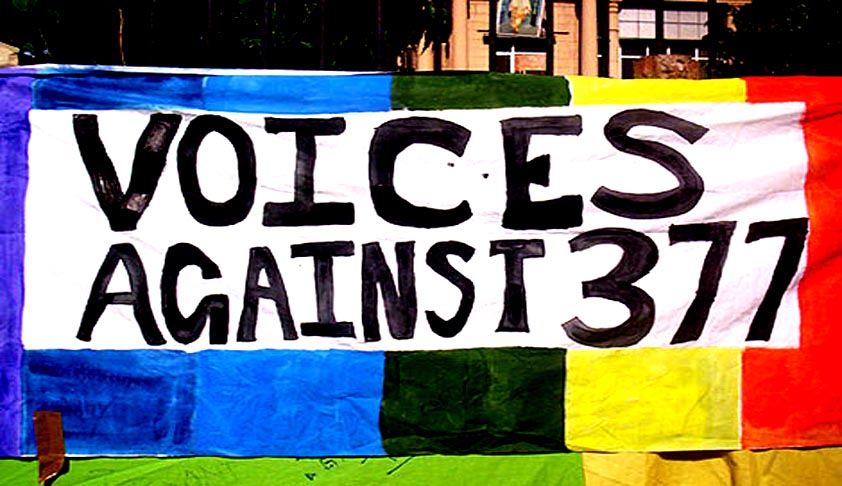Navtej Singh Johar vs. UOI; Akkai Padmashali vs. UOI;

Case-NumberWP (Crl.) 76/2016; WP (C) 572/2016;
Case Description
On 6th September 2018, a five-judge Bench unanimously struck down Section 377 of the Indian Penal Code, to the extent that it criminalized same-sex relations between consenting adults. LGBT individuals are now legally allowed to engage in consensual intercourse. The Court upheld provisions in Section 377 that criminalize non-consensual acts or sexual acts performed on animals.
Background
Section 377 of the IPC categorized consensual sexual intercourse between same-sex people as an “unnatural offense” which is “against the order of nature”. It prescribed punishment of 10 years imprisonment. The provision is a Victorian-era law, which survived into the 21st century. Interestingly, about 123 countries around the World have never penalized or have decriminalized homosexuality. Currently, 57 countries actively criminalize same-sex relations.
Naz Foundation (India) Trust challenged the constitutionality of Article 377 under Articles 14, 15, 19, and 21 before the Delhi High Court. The Foundation contended that Section 377 reflects an antiquated understanding of the purpose of sex, namely as a means of procreation, and has no place in modern society. Further, the police had weaponized the provision, which impeded efforts aimed at preventing the spread of HIV/AIDS. The Foundation cited an instance in 2001 in Lucknow where HIV prevention workers, who were distributing condoms to homosexual men, were arrested on the allegation that they were conspiring to commit an offense. The Naz Foundation also argued that the provision was being misused to punish consensual sex acts that are not peno-vaginal.
The Delhi High Court ruled in 2009 that Section 377 cannot be used to punish sex between two consenting adults – this violates the right to privacy and personal liberty under Article 21 of the Constitution. The Court held that classifying and targeting homosexuals violates the equal protection guarantee under Article 14 of the Constitution. Section 377 thus violated human dignity which forms the core of the Indian Constitution.
Several organizations and individuals challenged the Delhi High Court judgment in the Supreme Court. They argued that: the right to privacy does not include the right to commit any offence; decriminalizing homosexuality would be detrimental to the institution of marriage and would lure young people towards homosexual activities.
The Supreme Court reversed the Delhi High Court verdict in 2013 in it Suresh Koushal judgment and held that the decision of decriminalizing homosexuality can only be done by the Parliament and not the Court. It also held that Section 377 criminalizes certain acts and not any particular class of people. It also alluded to the minuscule number of people who were members of the LGBTI community and the fact that only a fraction amongst them had been prosecuted under Section 377.
Several curative petitions were filed challenging the Supreme Court judgment. While the curative petitions against the Suresh Koushal judgment were pending, 5 individuals from the LGBTQ communities – noted Bharatnatyam dancer Navtej Singh Johar, restaurateurs Ritu Dalmia and Ayesha Kapur, hotelier Aman Nath and media person Sunil Mehra filed a fresh writ a petition for scrapping Section 377 IPC in so far as it criminalized consensual sex between same-sex individuals.
The Supreme Court on January 5, 2018, formed a constitution bench for hearing the challenge to Section 377 in a comprehensive manner, even though the curative petition was pending before the Court. This could be due to the observations made in the 9 judge decision in the Right to Privacy case which hinted at the inherent wrongness of the reasoning and decision in Suresh Koushal. The 5 judge bench of Chief Justice Dipak Misra, Justice A.M. Khanwilkar, Justice D.Y. Chandrachud, Justice R.F. Nariman, and Justice Indu Malhotra heard the matter from July 10th, 2018.
On 6th September 2018, the five-judge Bench partially struck down Section 377 of the Indian Penal Code, decriminalizing same-sex relations between consenting adults. LGBT individuals are now legally allowed to engage in consensual intercourse. The Court has upheld provisions in Section 377 that criminalize non-consensual acts or sexual acts performed on animals.
The four judgments unanimously cited fundamental rights violations in reading down Section 377. They found that Section 377 discriminates against individuals on the basis of their sexual orientation and/or gender identity, violating Articles 14 and 15 of the Constitution. Further, they ruled that Section 377 violates the rights to life, dignity, and autonomy of personal choice under Article 21. Finally, they found that it inhibits an LGBT individual’s ability to fully realize their identity, by violating the right to freedom of expression under Article 19(1)(a).
DISCLOSURE: Jayna Kothari of the Centre for Law and Policy Research has filed a supporting writ petition on behalf of transgender rights activist Akkai Padmashali in this case.
